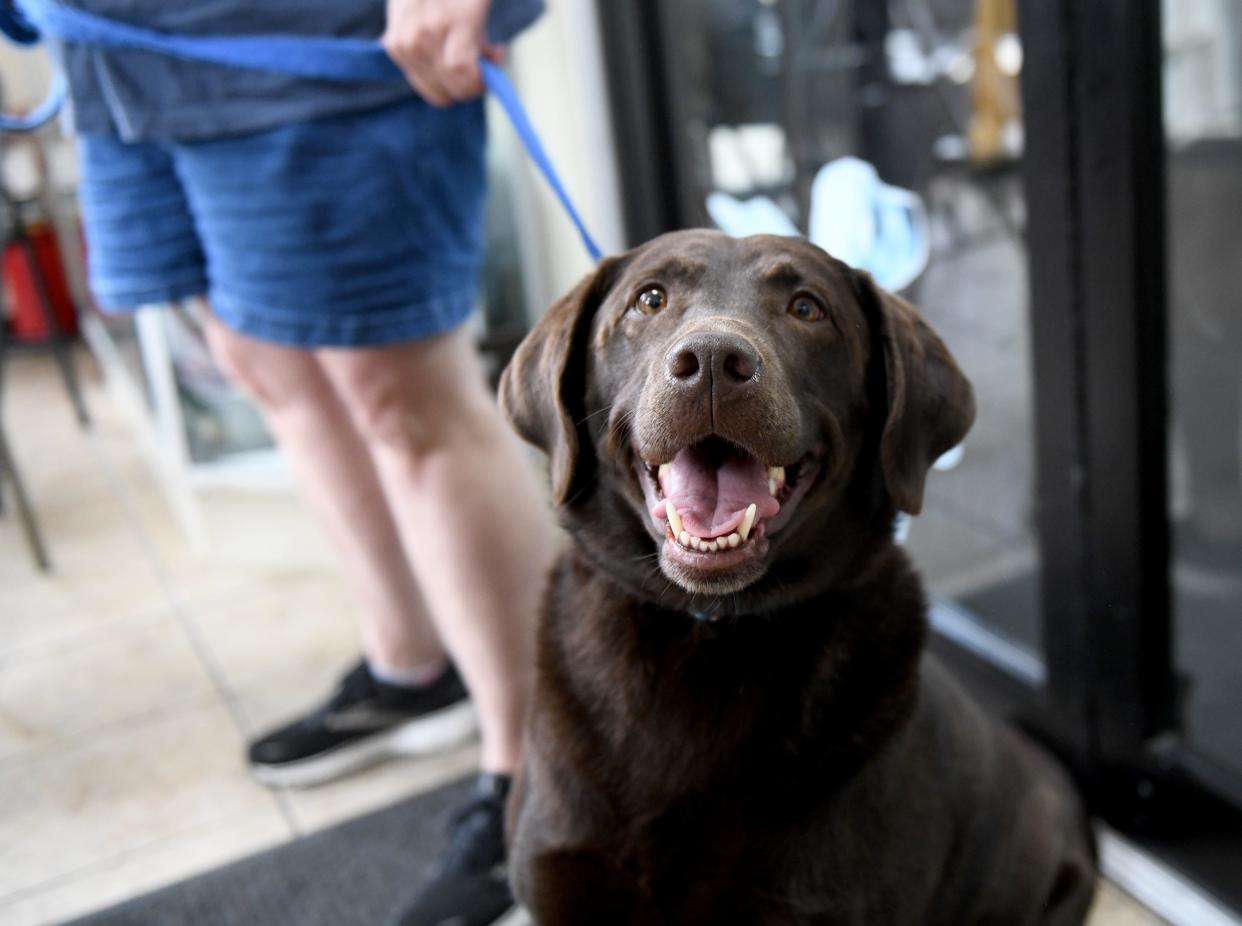Guest: Pets are important in seniors' lives. There are resources to help them with care

Companionship, comfort and love are all things that most people seek in this life. These elements that help complete us or make us feel more whole can be found in dear friends and family, of course, but more often than not, they are found with our beloved pets. We open our hearts and homes to these creatures, and they often fill a void that we didn’t even know existed. The great French poet, journalist and novelist Anatole France said, “Until one has loved an animal, a part of one’s soul remains unawakened.”
It may seem odd to place such emphasis and importance on pets, but as you read on, it will be strikingly clear just how much animals have taken prominence in our everyday lives. This is especially true regarding seniors, many who have come to rely on their pets for companionship, comfort, love and even purpose.
More: Guest: Our golden years are the perfect time to pursue new activities
According to michiganmedicine.com, 55% of adults ages 50 to 80 have a pet, and more than half of those seniors have multiple pets. More than three-quarters of pet owners say their animals reduce their stress, and nearly as many say pets give them a sense of purpose. Not surprisingly, it reported that 95% of seniors talk to their pets and consider them a companion, and 82% of seniors say their pets help them feel happy and reduce their sadness.
Additionally, in 2023 about 66% of American households reported they owned at least one pet, according to statista.com. That survey reveals dogs are still Americans’ favorite pets, followed by cats and freshwater fish. In the most recent survey year, about 65 million households owned at least one dog. Dogs often essentially compel their owners to get out of the house and engage in social interactions with others. They must be walked, taken to the vet, groomed and more. Dogs require a lot, which is very beneficial for a lonely senior. In addition to connecting seniors to the local community and the outside world, getting out and interacting with other people helps reduce stress and depression. Furthermore, socializing with others often provides seniors with ample opportunities for participation in exciting, morale-boosting endeavors, which can enhance the sense of fulfillment with life.
One concern for seniors may be whether their pets will be allowed to live with them in a senior community. Thankfully, many senior communities are recognizing the love and devotion many seniors have for their pets — and the benefits of pet ownership for seniors — and these communities are increasingly willing to accommodate seniors along with their pets.
Although some retirement communities might accept any size dog into their residences, size might be an issue at other locations, so it is important to preview policies before making a choice. In most communities, a pet deposit is usually required, in conjunction with additional fees for services for senior pet care, such as taking their dog for walks. Moreover, dog parks are becoming a commonly available feature in some senior living communities.
Another facet of being a senior pet owner to consider is what will happen to the pet after you can no longer care for them. A “pet trust” can be established to ensure the pet will be properly cared for throughout the duration of its life. It is now common for attorneys to set this up for seniors, pre-arranging for the care of the pet after the owner passes, in the event that the owner passes before the pet.
As much as we love our pets, having the resources to take care of our pets, and consistently maintaining a high standard of care, may be challenging. Often pets can be a financial burden such that many seniors may struggle to adequately provide for their pets and themselves. There is an avenue to mitigate this challenge.
The Pet Food Pantry of Oklahoma City is available to assist low-income seniors and veterans. They are central Oklahoma’s food bank for pets. The Pet Food Pantry provides free pet food to those 63 or older, U.S. veterans (any age with proof of service), or the disabled (any age with proof of disability income). One stipulation is that all pets must be spayed/neutered. If you need assistance, you can call 405-664-2858 and leave your name and address so an application can be mailed to you.
Monetary and pet food donations always are appreciated, and you can call the provided number or go to www.pfpokc.org for a donation pickup location. All donations are tax-deductible, and gift cards from Sam’s Club and Walmart also can be mailed to the Pet Food Pantry address: P.O. Box 50101, Oklahoma City, OK 73140. Volunteers are also welcome to fill out applications online or request applications be emailed or mailed to them.
Pets are certainly an important part of a senior’s life, and it is easy to recognize this when considering what resources seniors need. Pet care is clearly at the top of that list.
More: Lifelong learning can enhance your senior years

Robin Gunn is the owner of The Oklahoma Senior Journal, which includes a pet section with vital information about the importance of pets to seniors. She can be reached at rgunn@okseniorjournal.com
This article originally appeared on Oklahoman: Guest: Pets are vital to seniors, but they need help with their care

